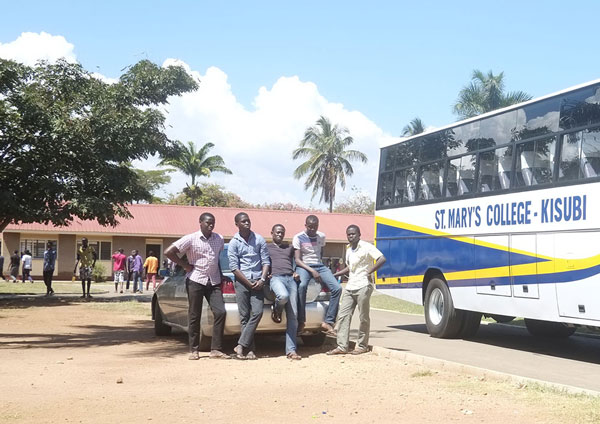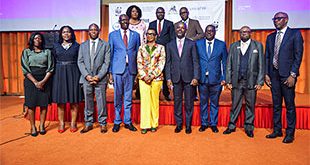
Kampala, Uganda | THE INDEPENDENT | Members of Parliament from the Acholi sub-region have proposed that the government either take control of all grant-aided schools or implement stringent regulations as a crucial step in restructuring the education system.
The proposals were delivered during a meeting at Nakawa, with the Education Policy Review Commission, led by Nuwe Amanya Mushega.
Anthony Akol, the Chairperson of the Acholi Parliamentary Group, said that the current scenario of various schools being owned by different foundation bodies, is causing confusion and fostering division in many communities, particularly in their region.
He pointed out that in the Acholi region, schools affiliated with different religious bodies—Catholics, Anglicans, and Muslims—are operating independently and have demonstrated different teaching methodologies that impact the lives of our children differently, leading to a fragmented educational landscape.
This situation has exacerbated societal divisions, with parents aligning themselves with specific religious group schools. Akol emphasized that education should ideally have a national character.
Furthermore, he underscored the employment practices in these schools, revealing that religious considerations often dictate hiring decisions. For instance, Catholic schools reportedly exclude non-Catholics from teaching positions, headteacher roles, and membership in the management committee. This discriminatory approach, according to Akol, further hampers the inclusive and national character that education should embody.
It’s important to note that over 74 percent of government-aided schools in Acholi are owned by non-state actors such as communities and faith-based organizations, including the Catholic Church, the Church of Uganda, and the Uganda Muslim Supreme Council.
However, when the issue of school ownership was brought before the commission, it became a heated topic. Almost all commissioners acknowledged the need for action but were uncertain about how to streamline the relationship between the government and grant-aided schools.
During the discussion, Acholi Members of Parliament, including Gulu Woman City MP Betty Aol Ocan, provided personal opinions. Some opposed the radical takeover of faith-based schools, with Ocan emphasizing the delicate nature of the matter and the need for careful handling.
Information from the commission reveals that this isn’t the first time such a recommendation has been brought forward. Several groups have raised similar concerns.
Monica Abenakyo, a commission member, confirmed that during their visit to Acholi, it was a major concern for the local people. The majority who participated expressed the desire for the government to take full control of these schools.
Clarence Olongamuri another member of the Commission, noted that in addition to calls for a government takeover of grant-aided schools, others are alternatively urging the removal of faith-based institutions’ control over the schools by limiting their influence on school boards and management committees.
However, Olongamuri emphasized while submitting recommendations, it should be highlighted and considered that when these schools were established, the faith-based organizations had their own visions and missions, which the schools are trying to uphold and implement.
This isn’t the first time Ugandans have recommended a government takeover of faith-based foundation schools. The Thomas Education Committee in 1940, followed by the de Bunsen Education Committee in 1952 and the Uganda Relationship Commission in 1961, all reflected similar sentiments.
In 1963, through the Education Act, the government indeed assumed control of schools. This move resulted in the Church of Uganda, the Roman Catholic Church, the Uganda Muslim Education Association, and various Asian communities losing control over schools they once managed. The government took charge, allowing it significant authority in school affairs.
According to a book by Prof. JC Ssekamwa, religious groups, and the Asian sections were not entirely excluded from managing the schools they founded; they were recognized as Foundation Bodies in the Act. Despite this, the NRM government later returned ownership of these institutions. When the UPE program was introduced, the government, facing a shortage of schools in many areas, incorporated non-state schools into the aiding arrangement.
Rev. Fr. Charles Onen, MP Gulu City East Division, warned that a radical recommendation might cause uproar across the country. To him, the issue of ownership of these schools goes beyond their role as facilities for learning.
Rev. Fr. Onen says religious groups see educational institutions as tools of evangelization.
Additionally, he highlighted another concern, which is the land-related issue, as churches and other faith-based institutions own the land on which these institutions are situated.
Initially, they attempted to remove church representatives as signatories on school accounts and requested the institutions to hand over land titles to the ministry.
Since 2013, the government has been working to ensure that public and government-aided schools acquire their own certificate of title, aiming to secure their existence. This effort gained momentum in the last three years due to uncertainty about the future of many government-aided schools as foundation bodies, including the church, sought to reclaim part of the land they occupy.
During an interview with URN, Rt. Rev. Sanctus Lino Wanok, the vice chairperson of the Uganda Episcopal Conference, stated that the church is unwilling to hand over land titles or subdivide any part of their land, questioning the motive behind this development. He emphasized that the church has its plans for property management, and these cannot be compromised just because the government is providing aid to their schools.
After a heated debate, Akol still held the position of government taking over the school.
He however noted that if it is problematic then there is a need for stringent regulations on foundation bodies. To him, some practices like faith-based organizations insist on having only teachers of their religion rejecting headteachers, or deciding who should the school boards should control.
He suggested that if the government feels overpowered by faith-based organizations, it should establish its own schools with dedicated terms and regulations, withdraw funding from existing schools, and allow them to function as private schools. According to him, many of these religious institutions are, in essence, private schools charging high fees while also benefiting from substantial taxpayer money, which he believes should be halted.
In an effort to ensure full government ownership of seed schools, the government has been cautious about potential issues, but some of these schools have been built on land owned by religious bodies. Last year, the Ministry requested all foundation bodies with ownership of primary and secondary schools to adopt a no-fee policy or risk losing various forms of grants and funding. Additionally, the government abolished admission fees, examination fees, PTA fees, and insurance fees.
However, as of now, the government has not implemented these changes, and there is uncertainty about what will transpire. Religious bodies have even threatened to withdraw their schools from being granted aid if the government proceeds with these measures.
The situation remains unresolved, and the outcome is awaited.
****
URN
 The Independent Uganda: You get the Truth we Pay the Price
The Independent Uganda: You get the Truth we Pay the Price


